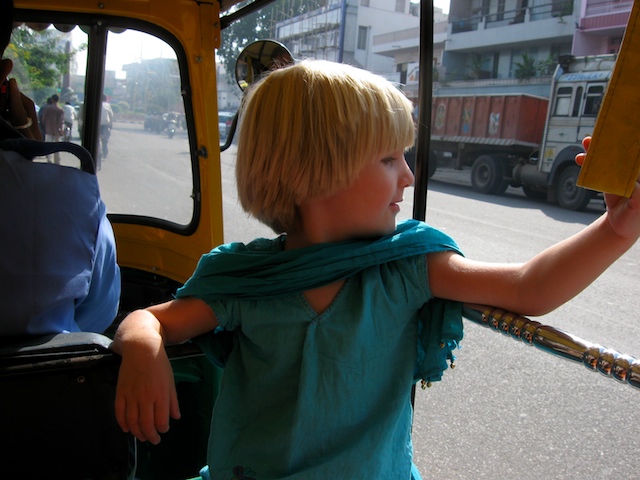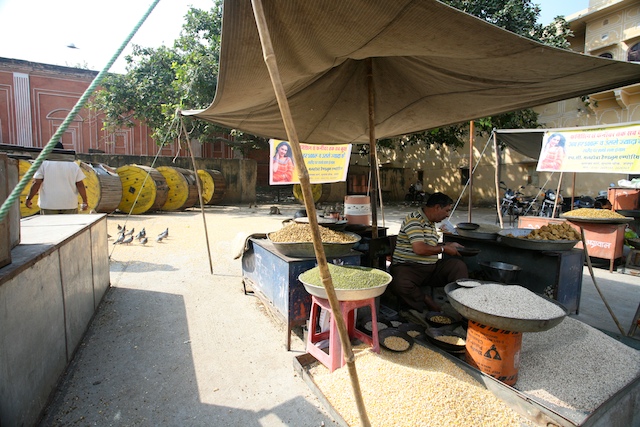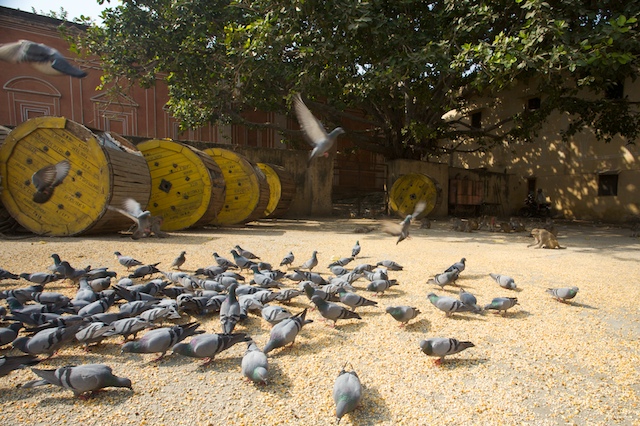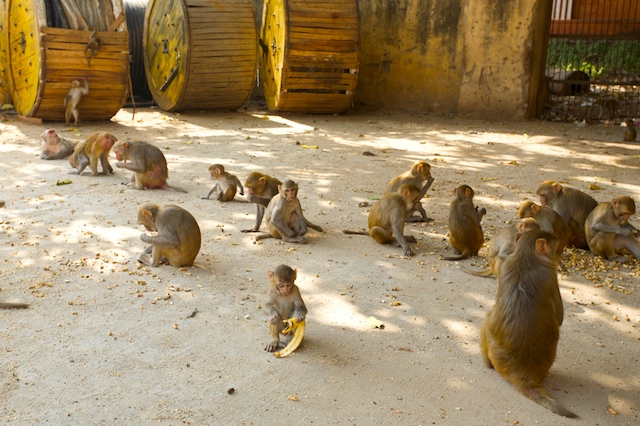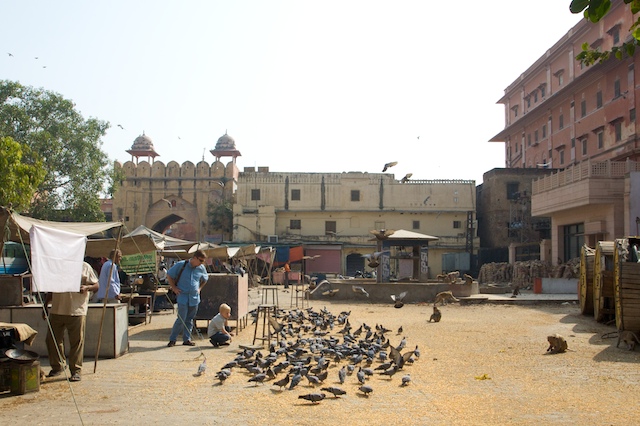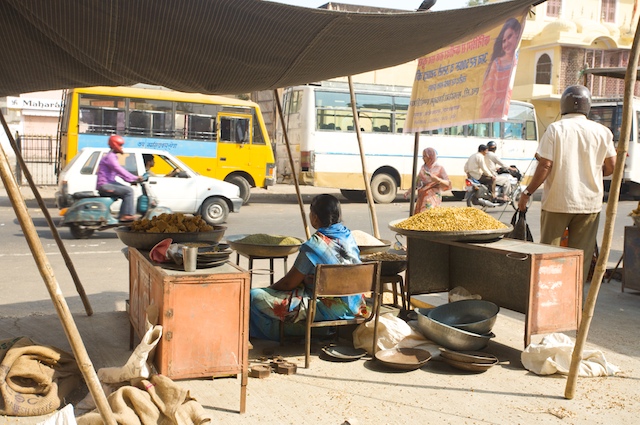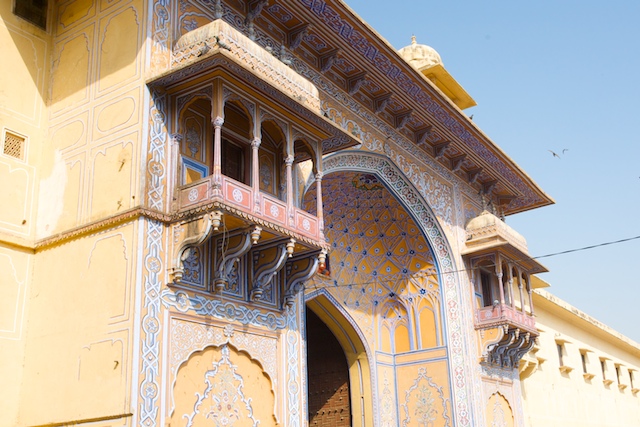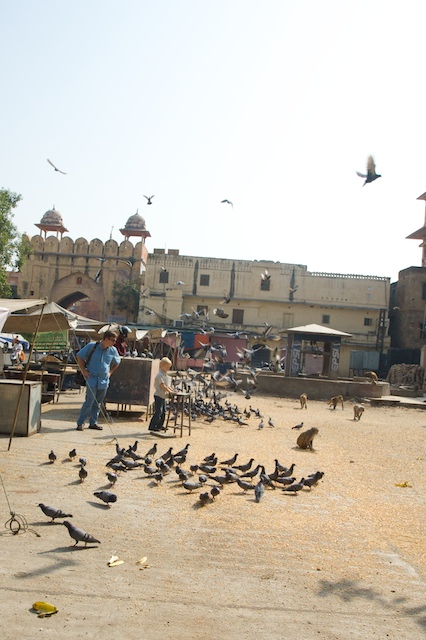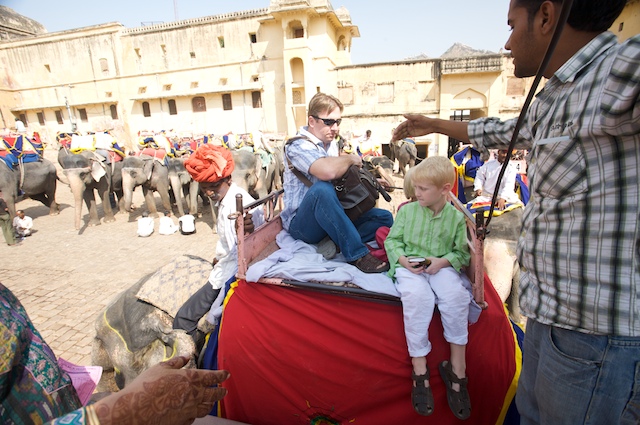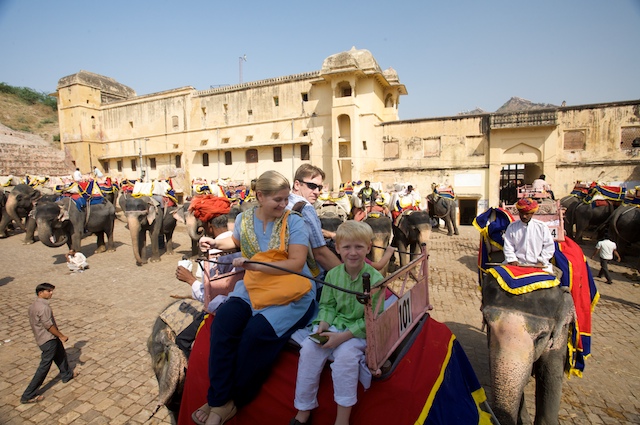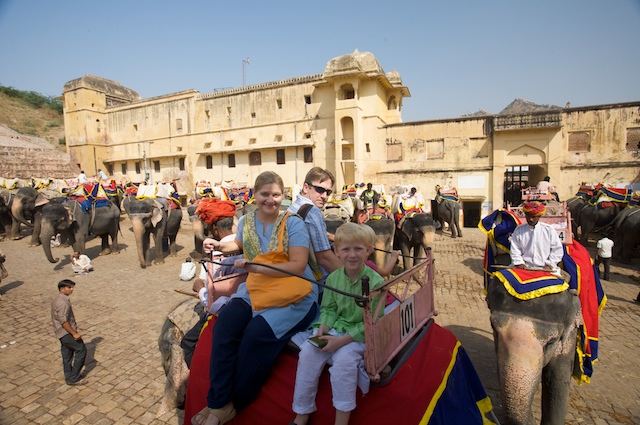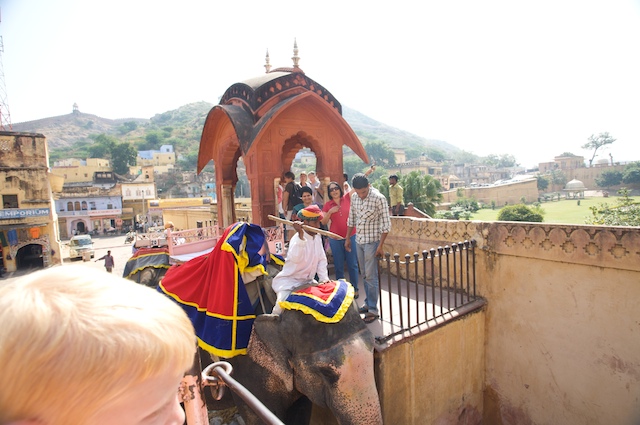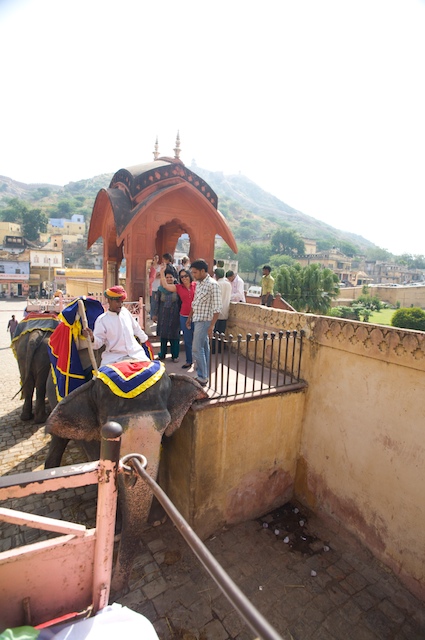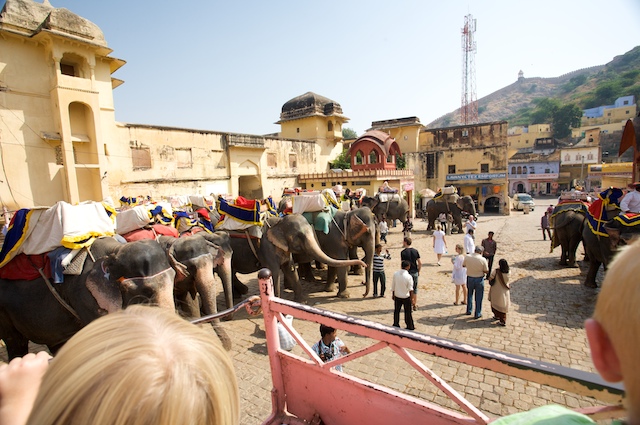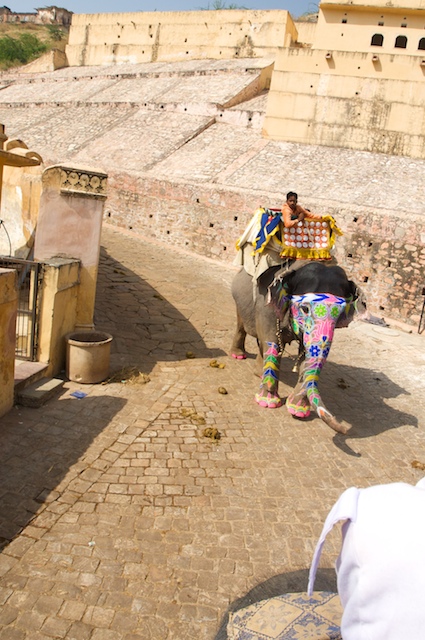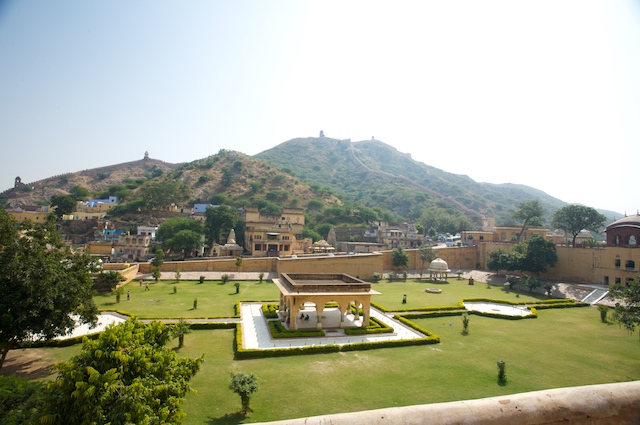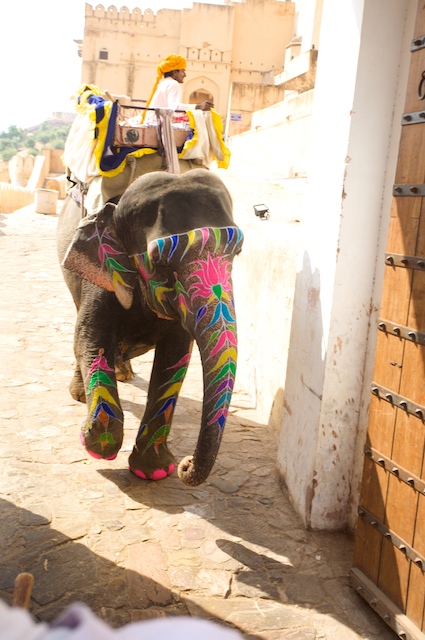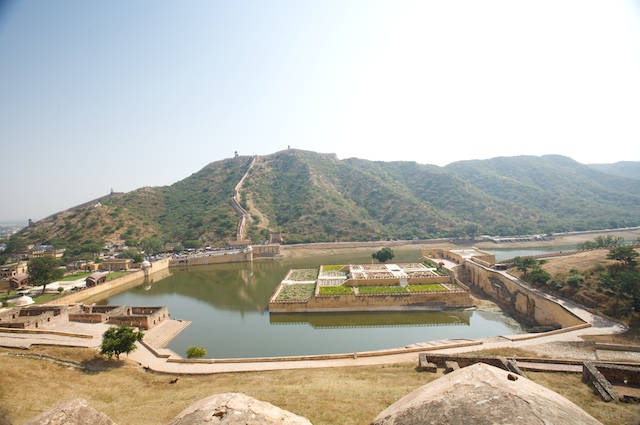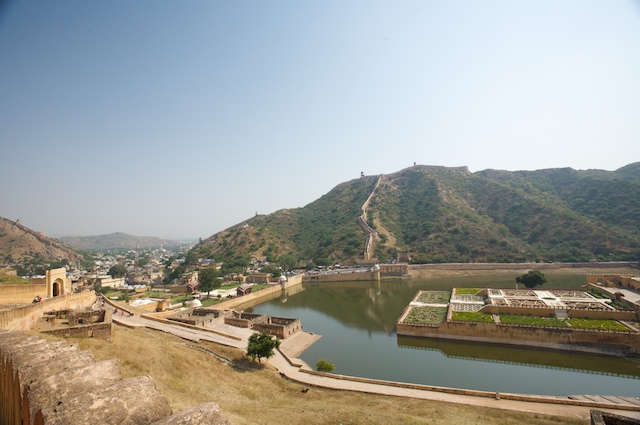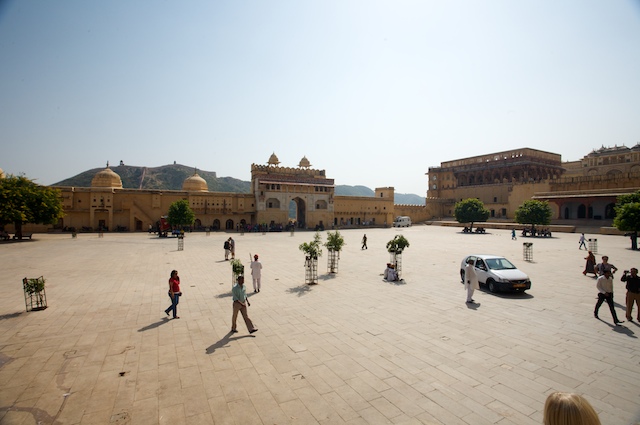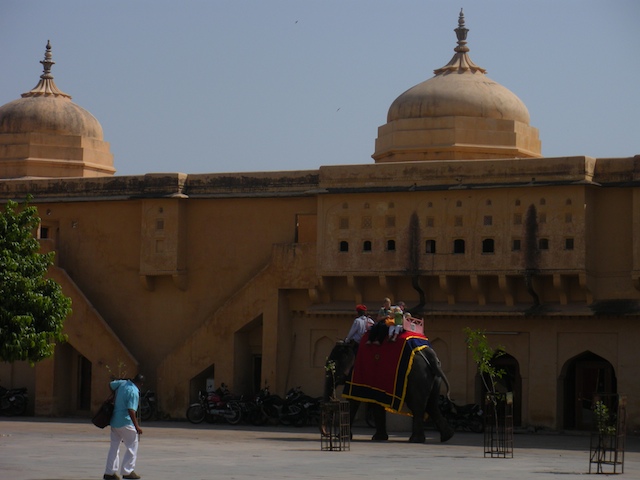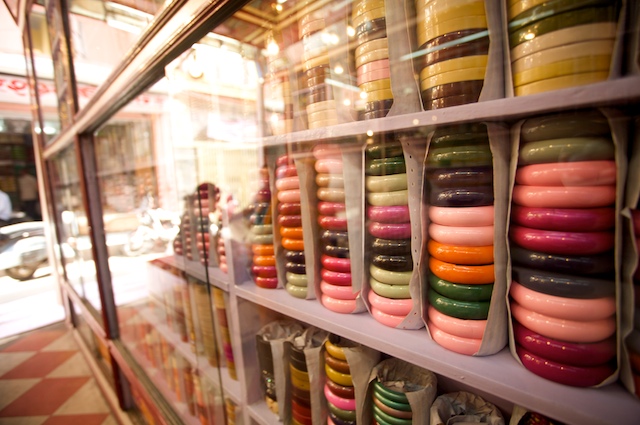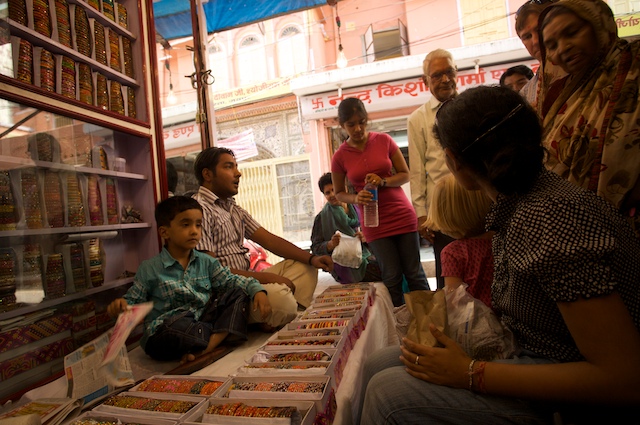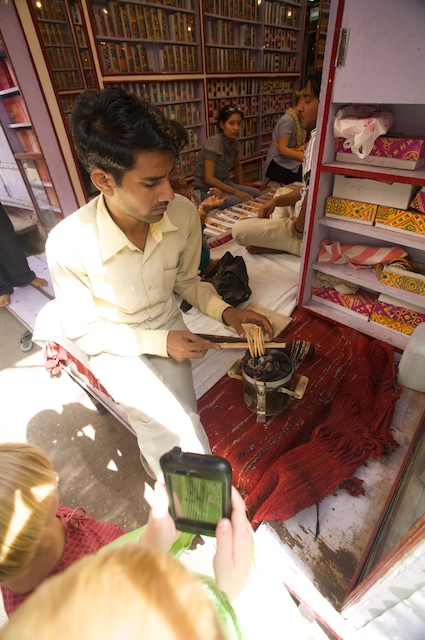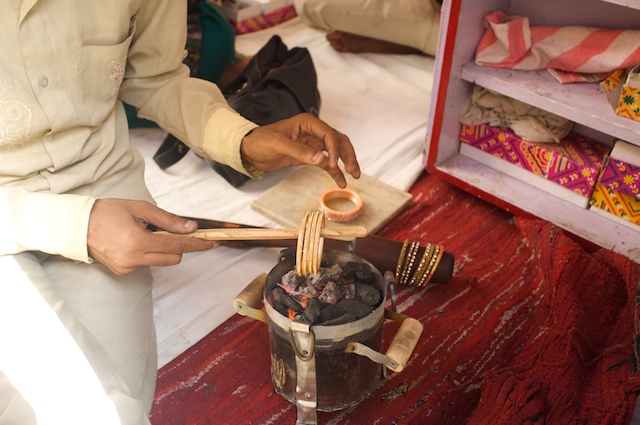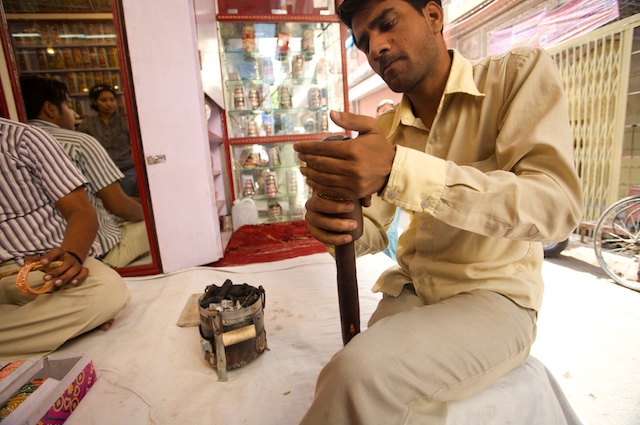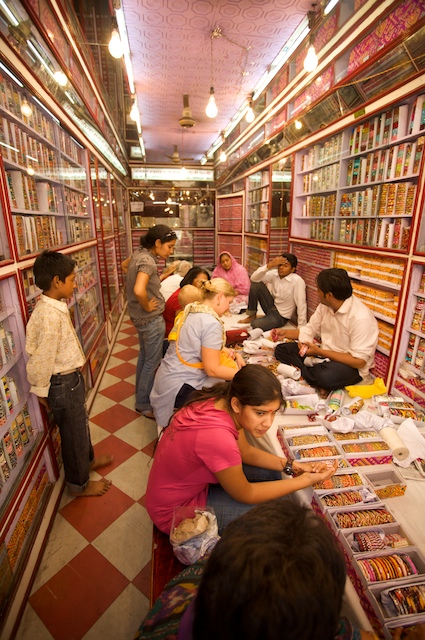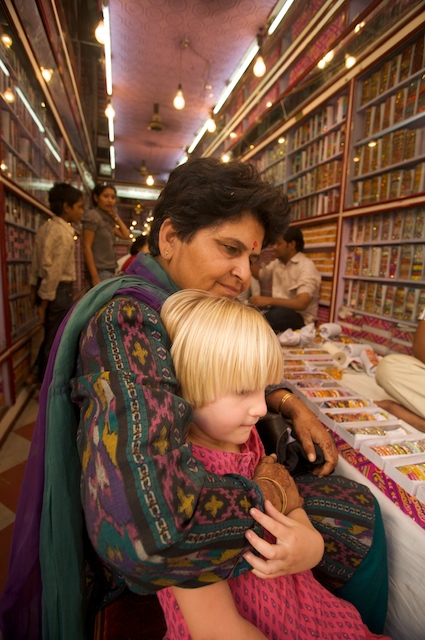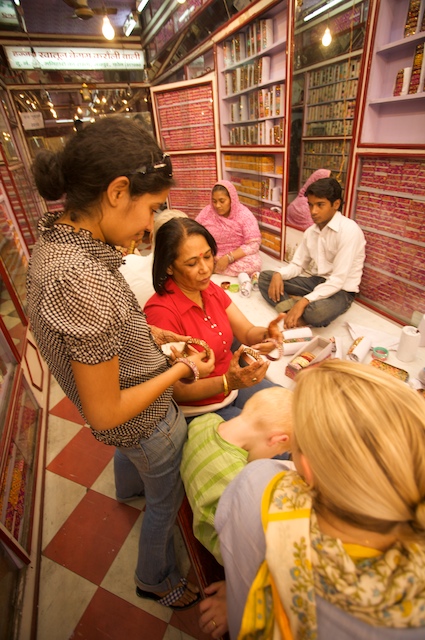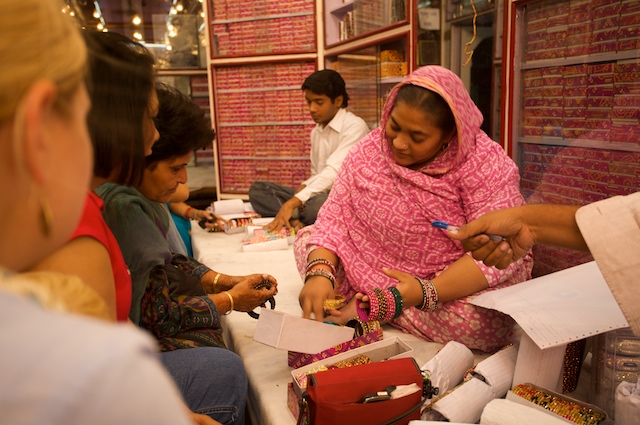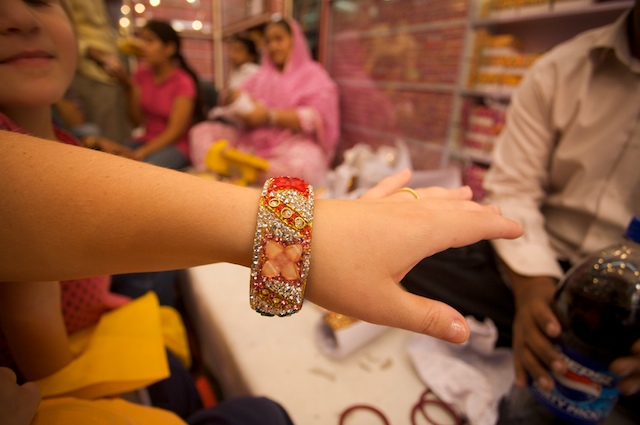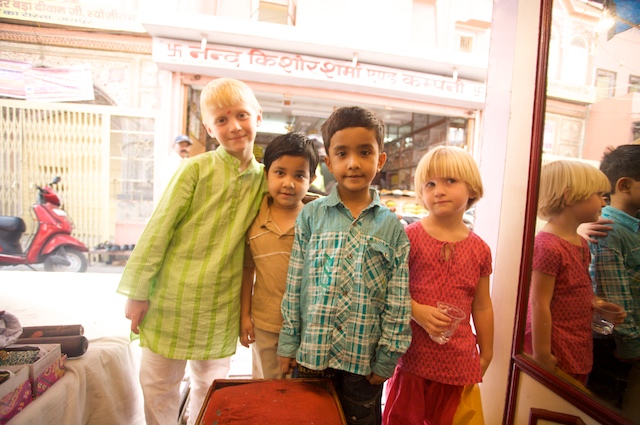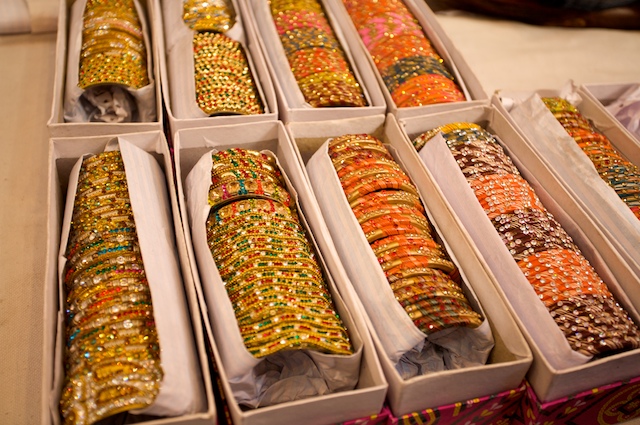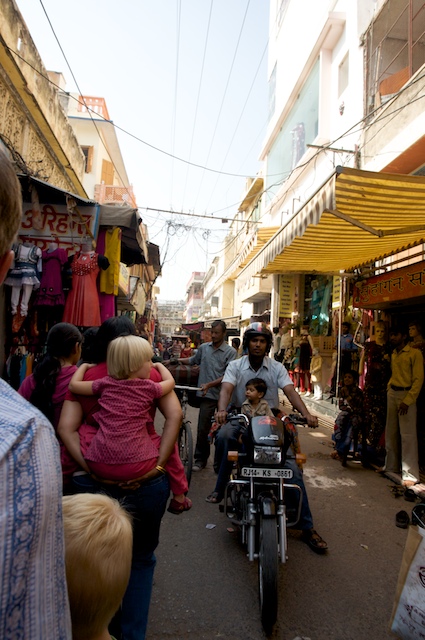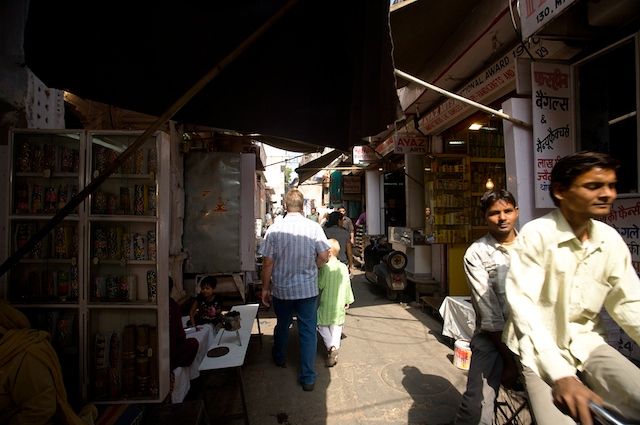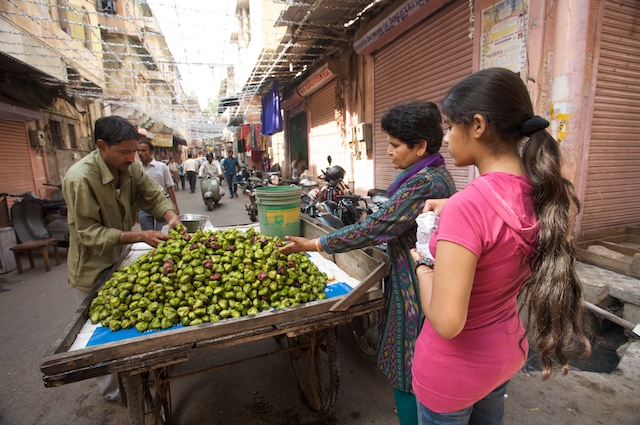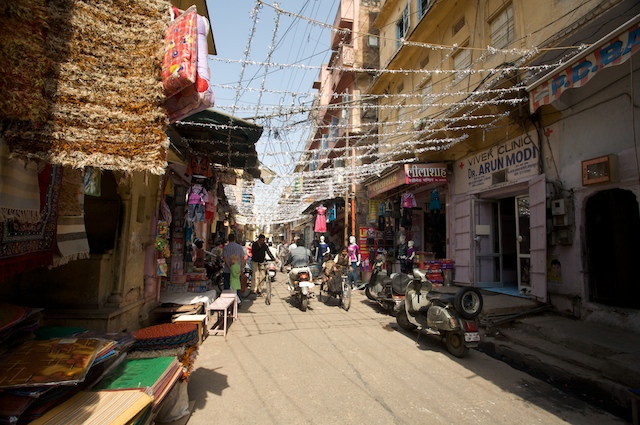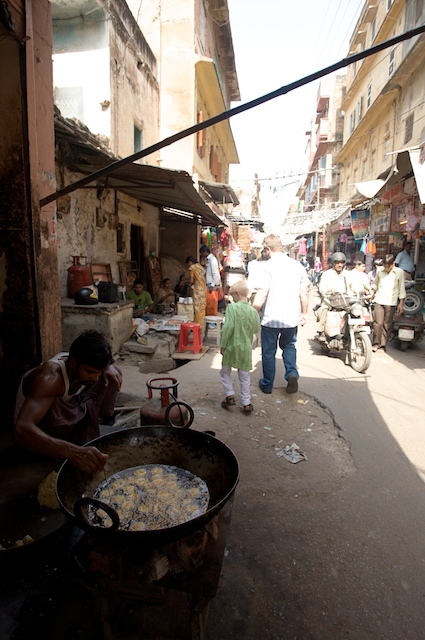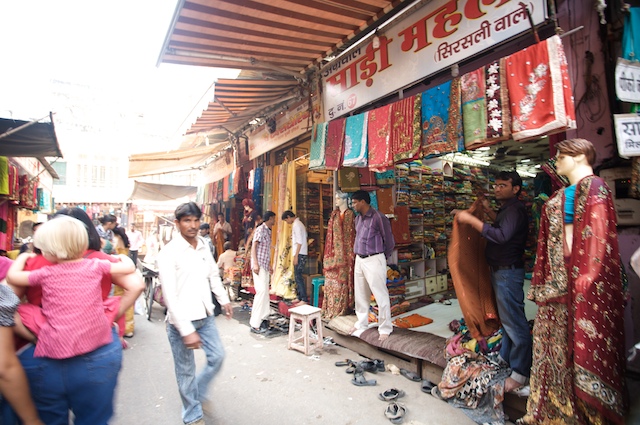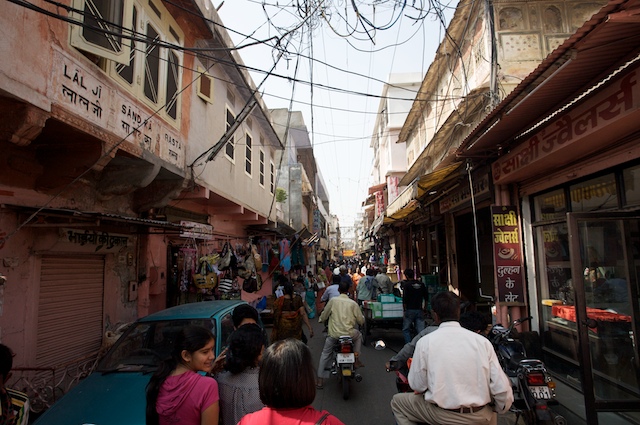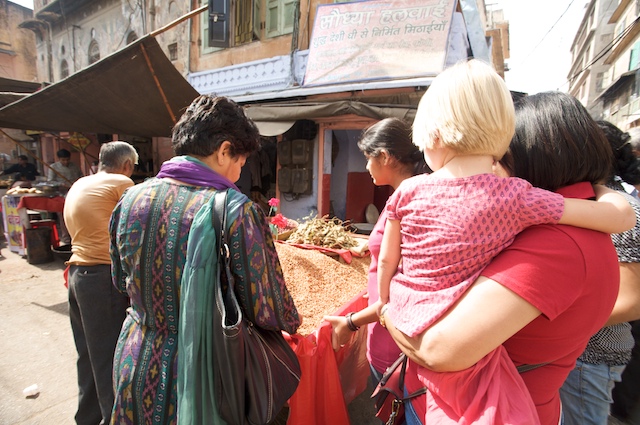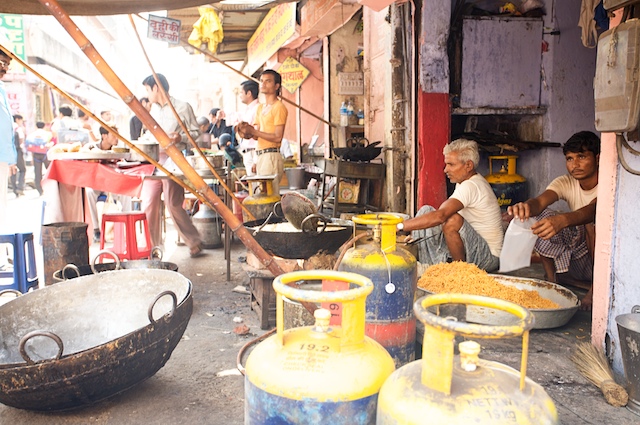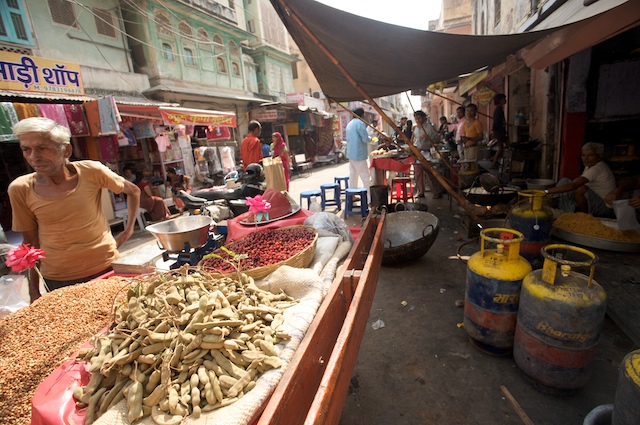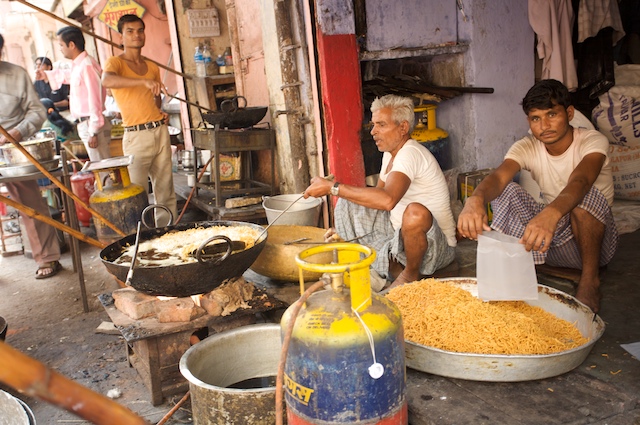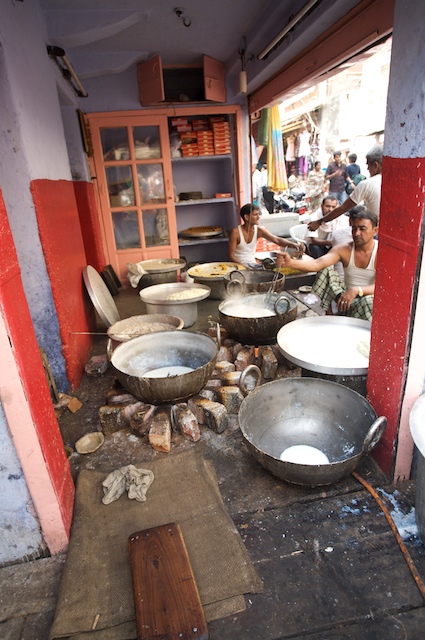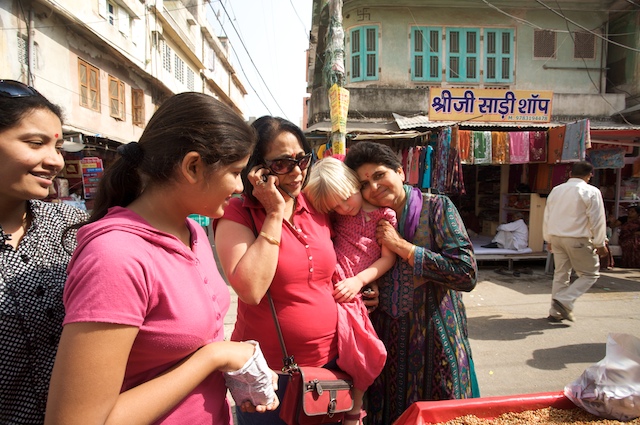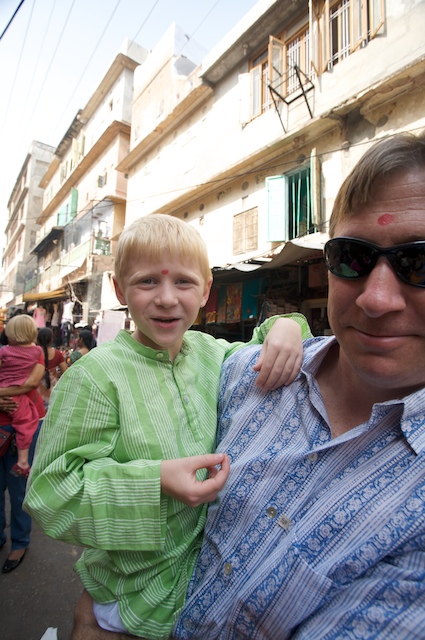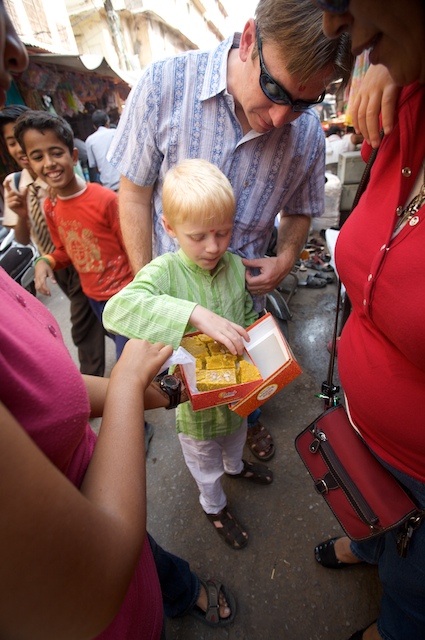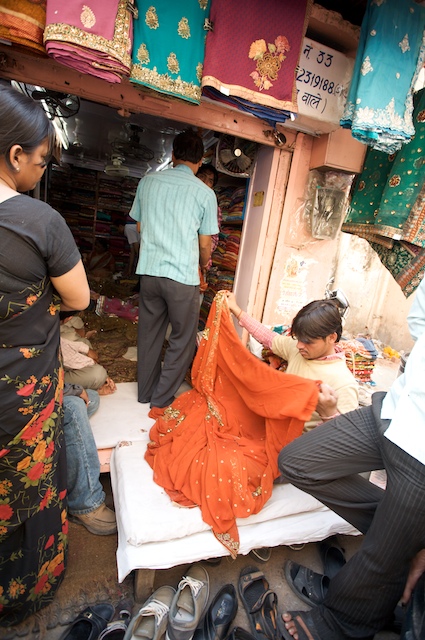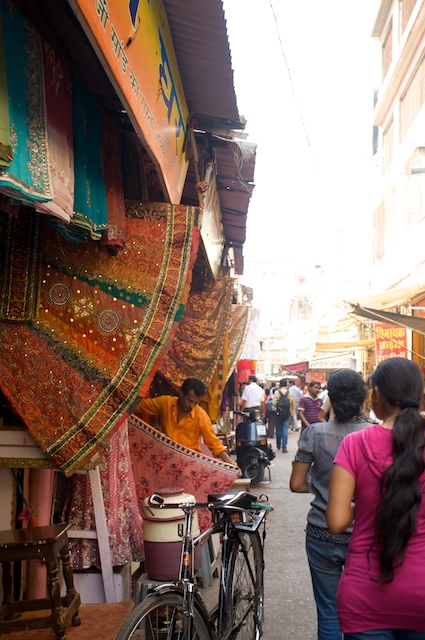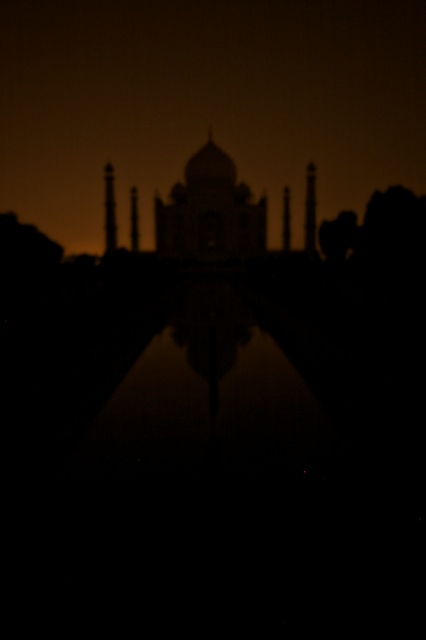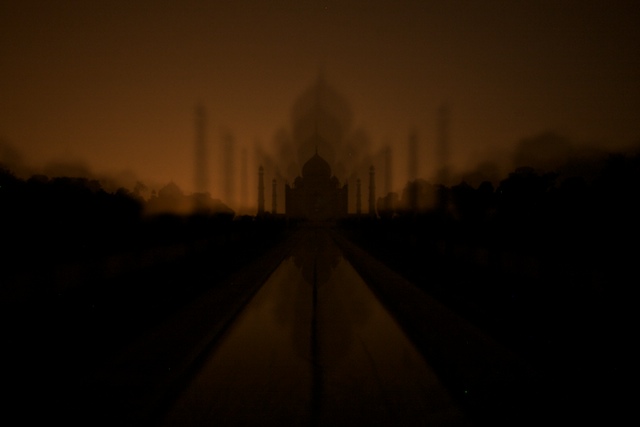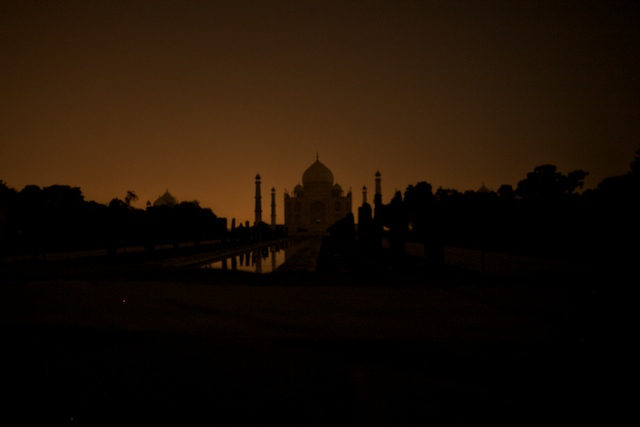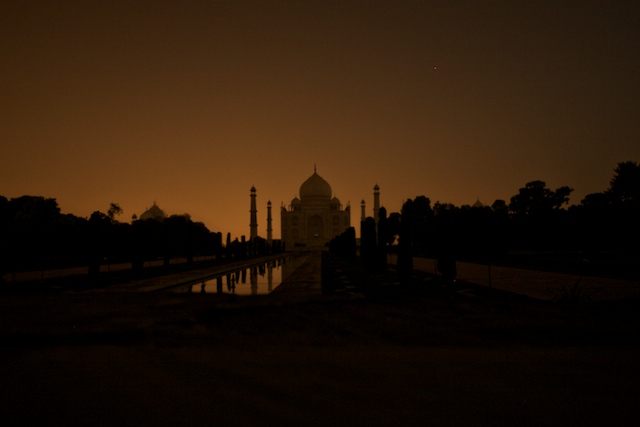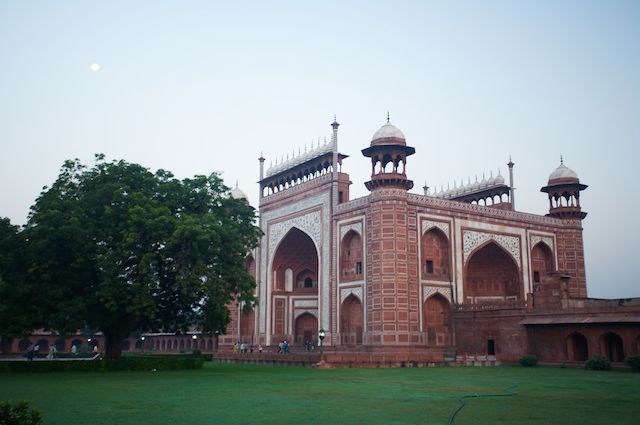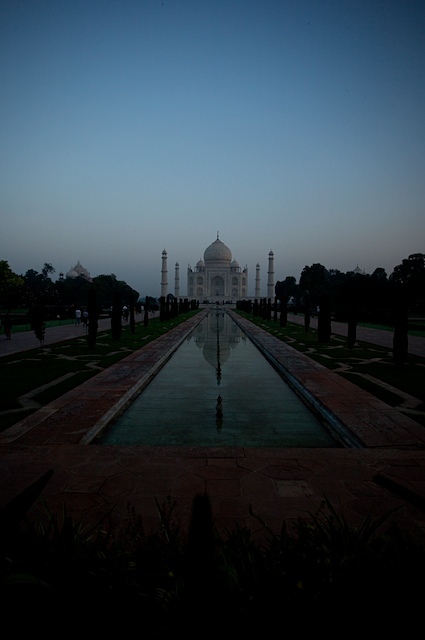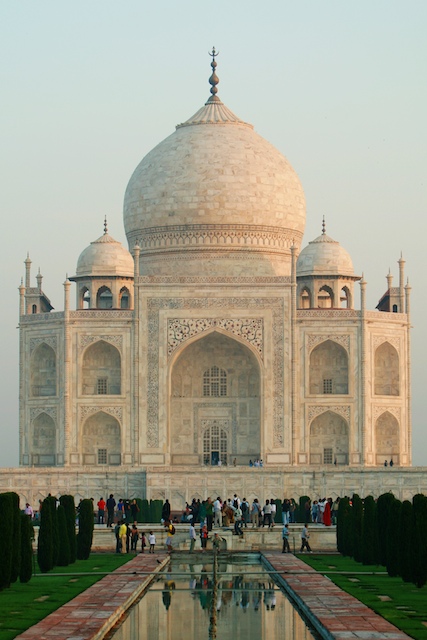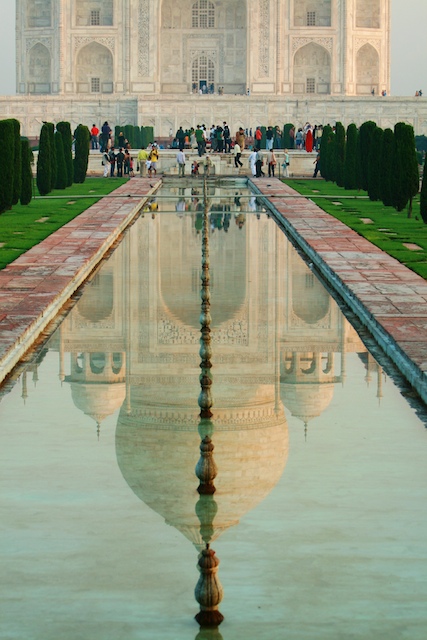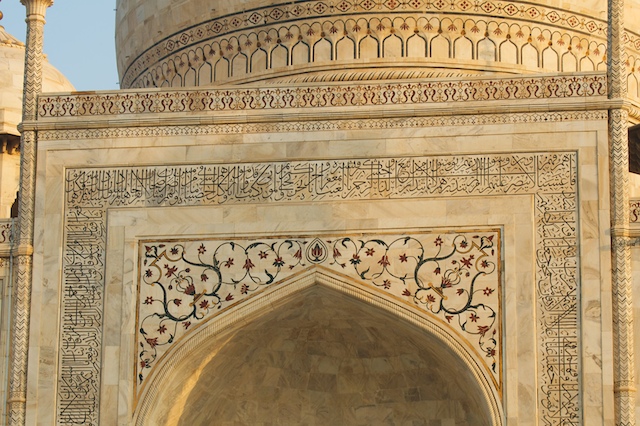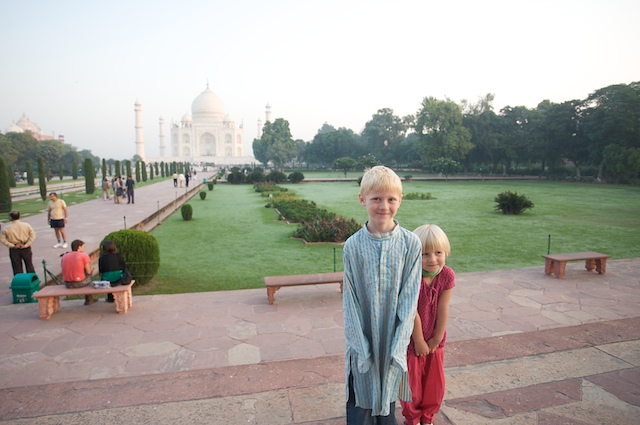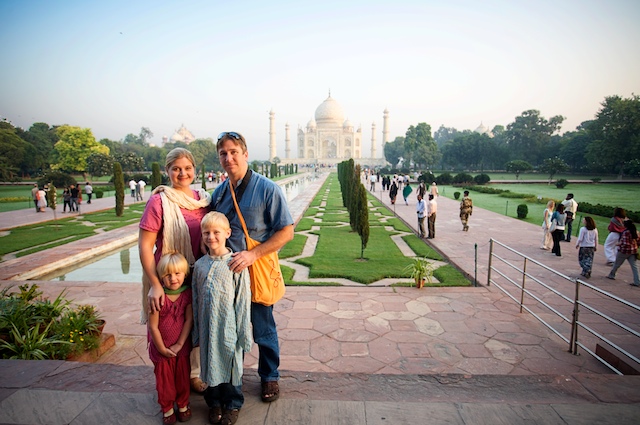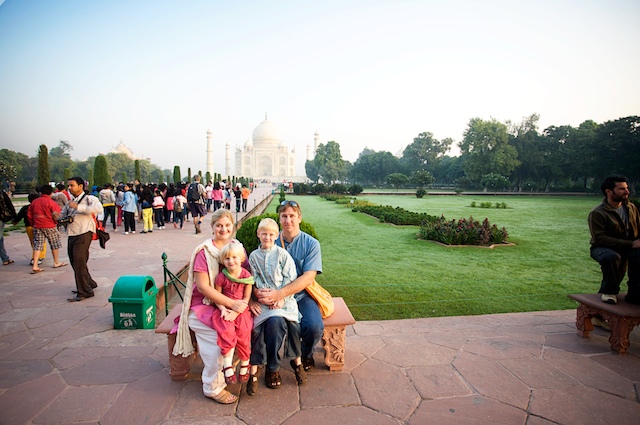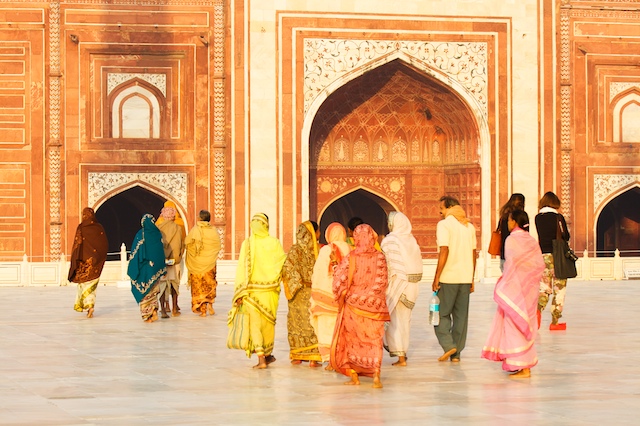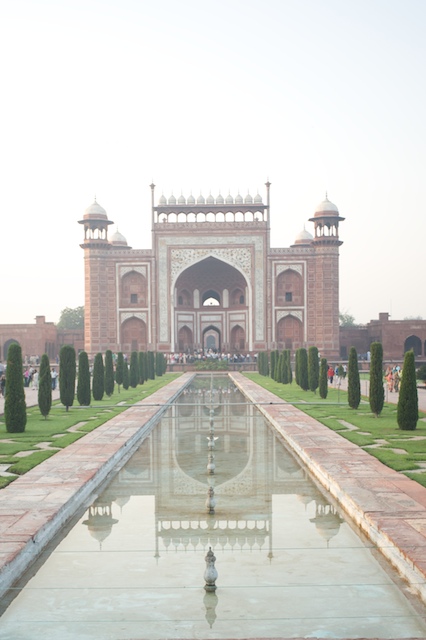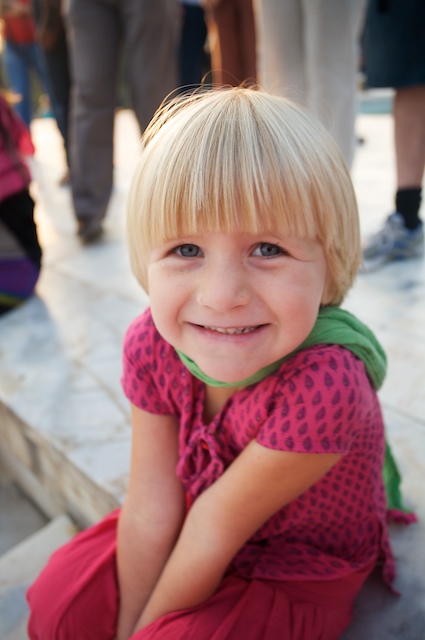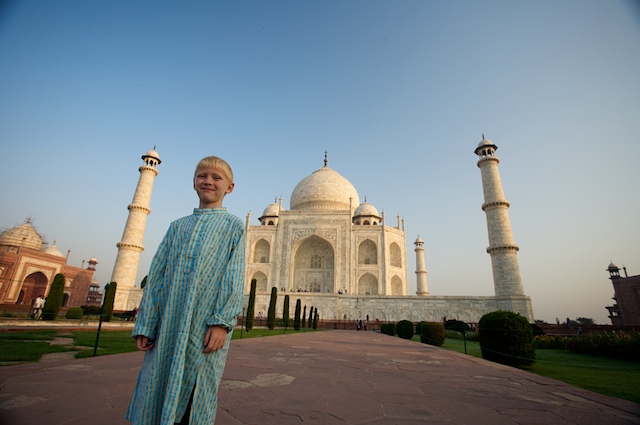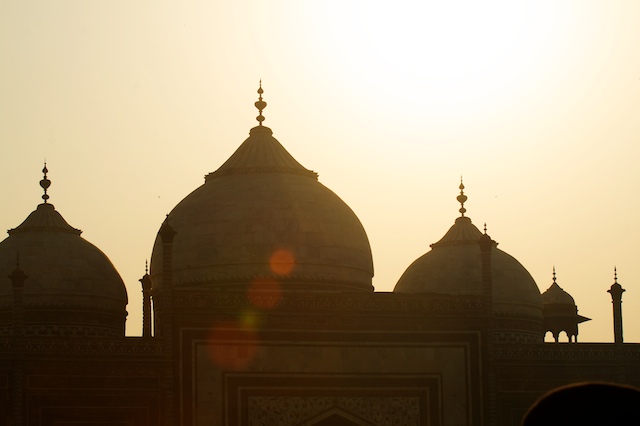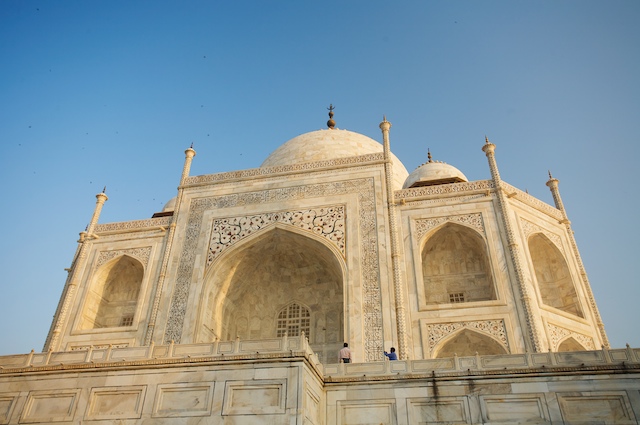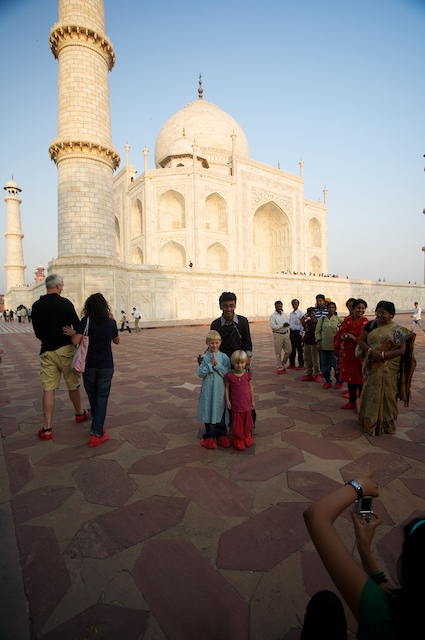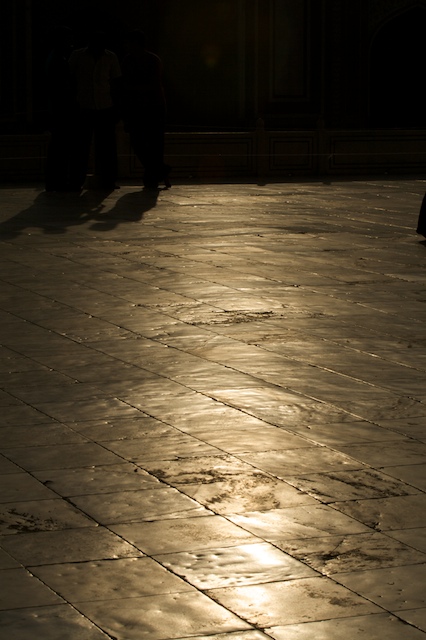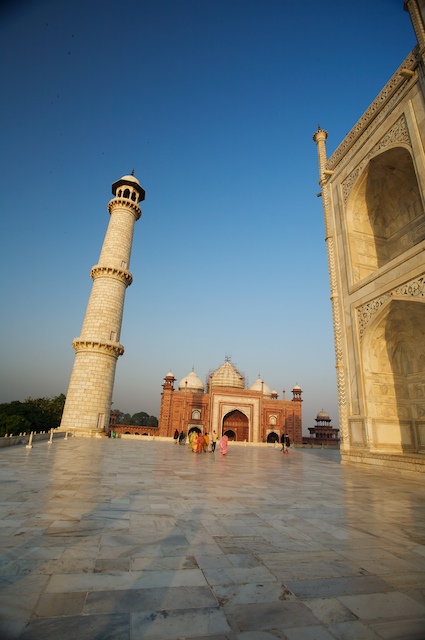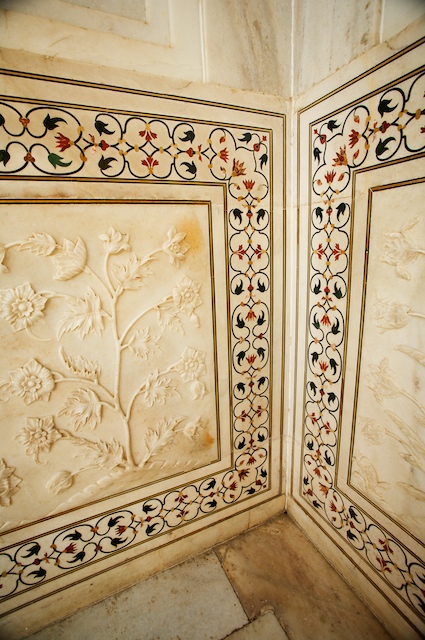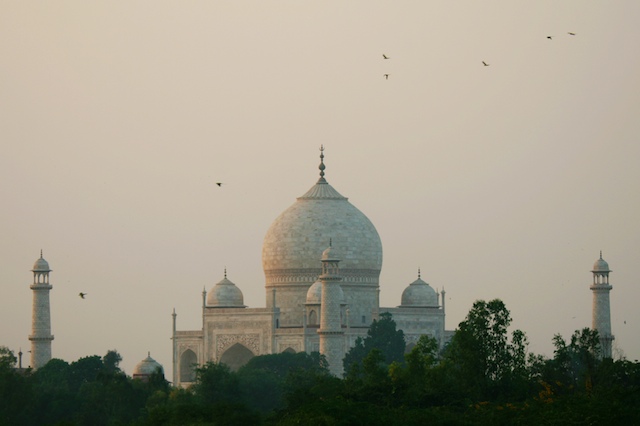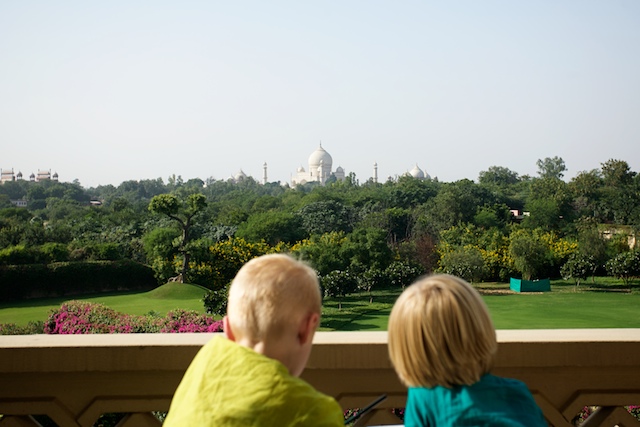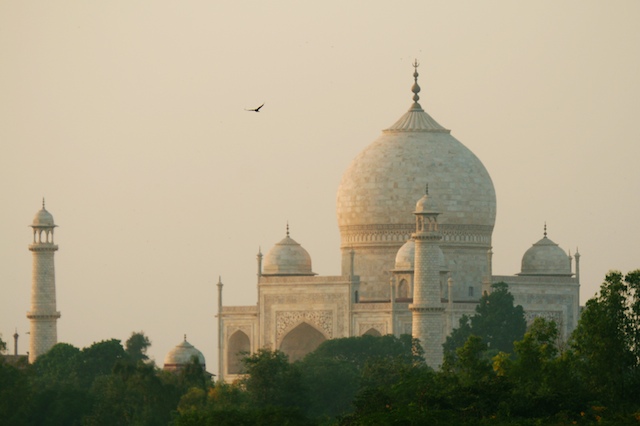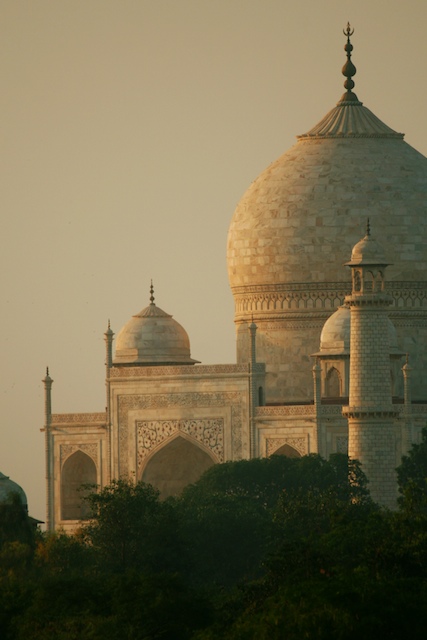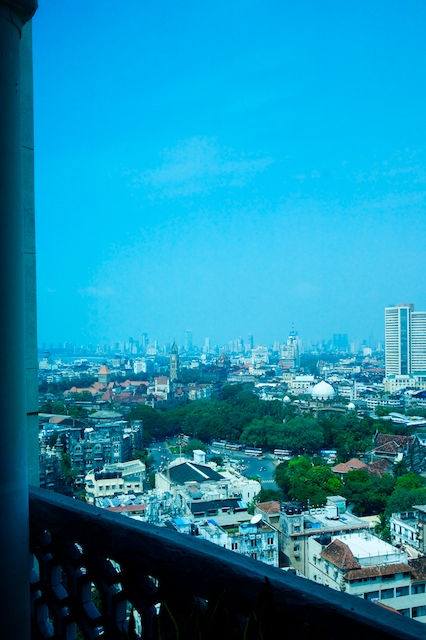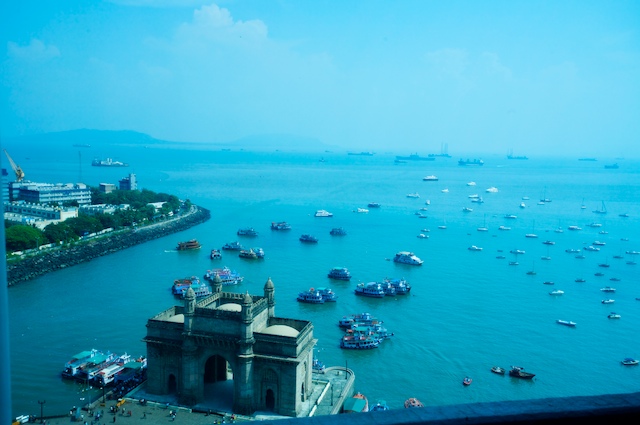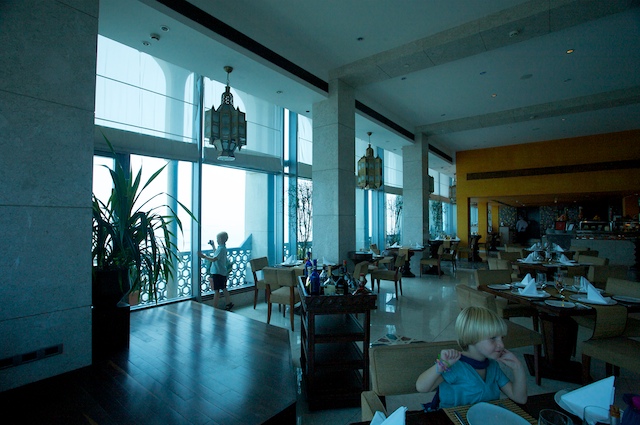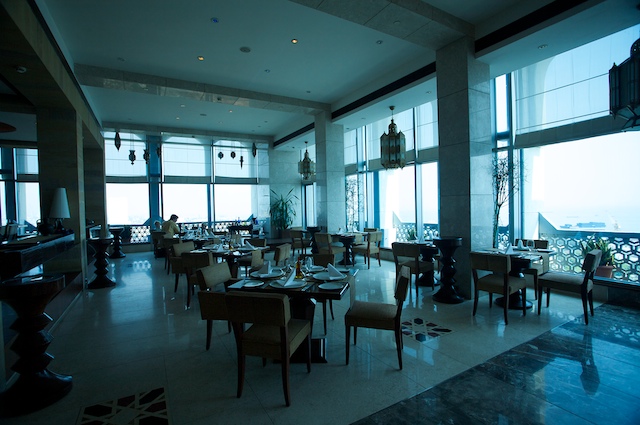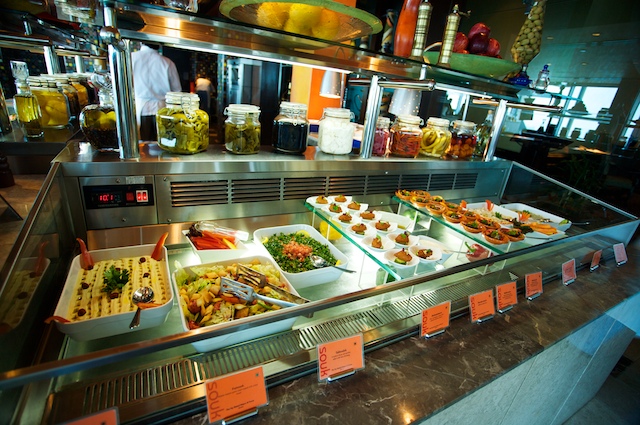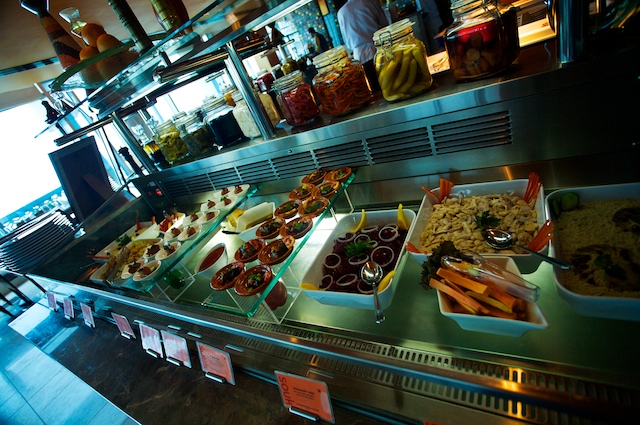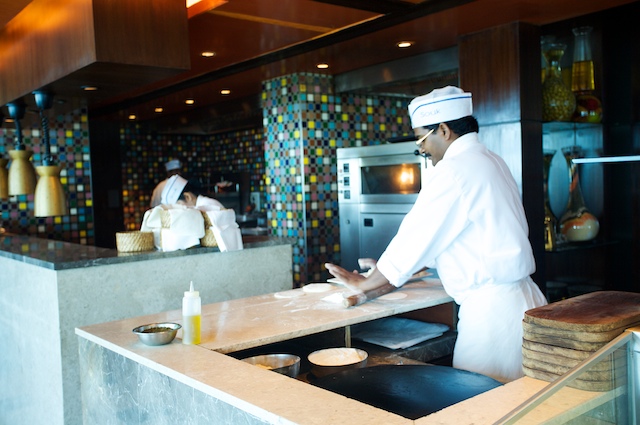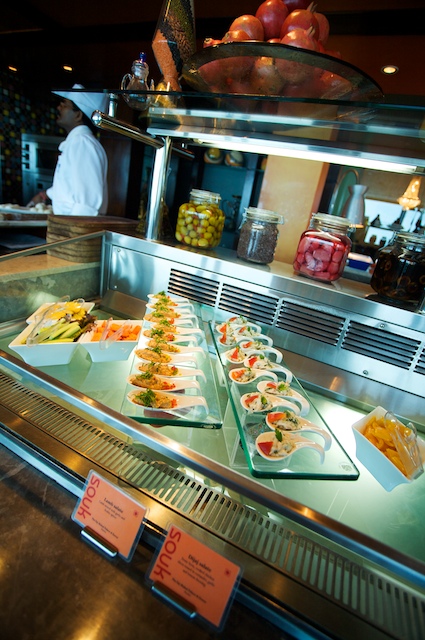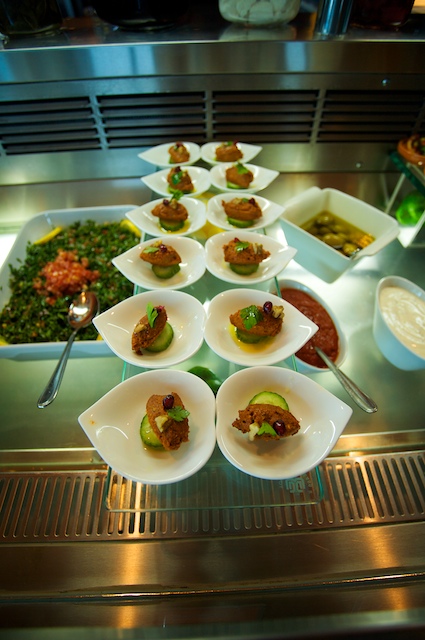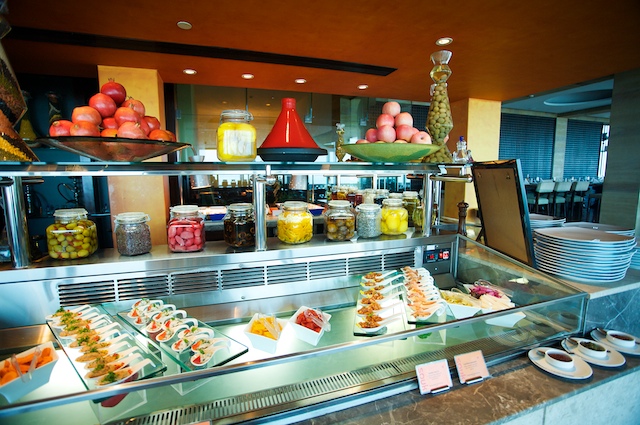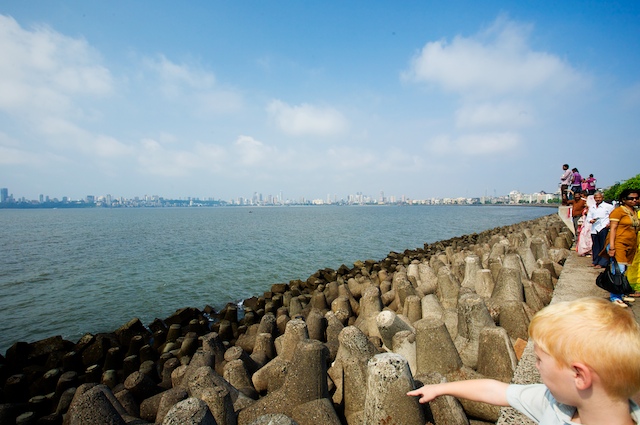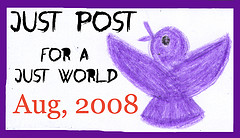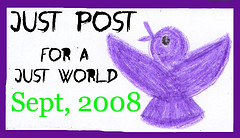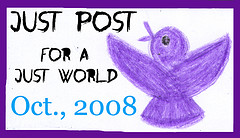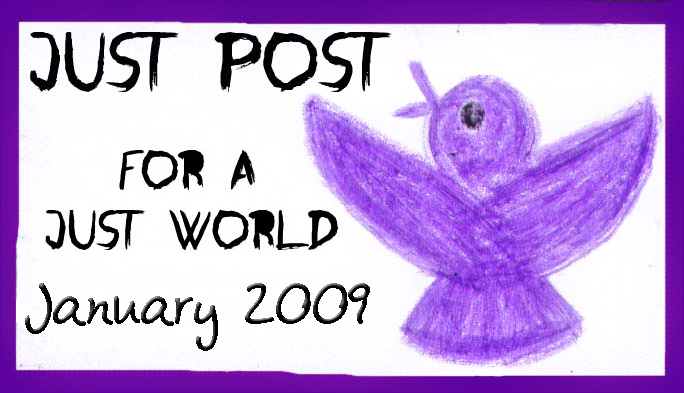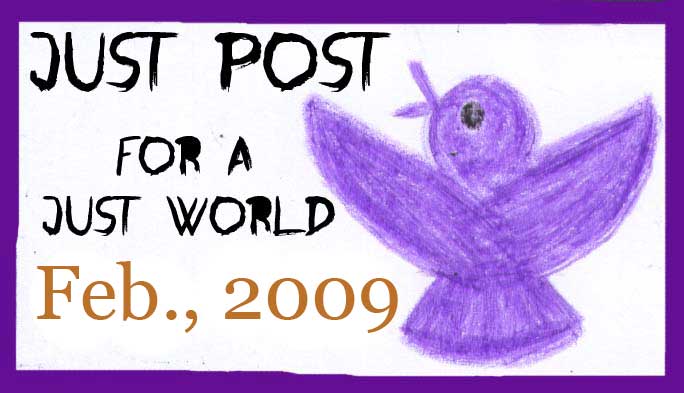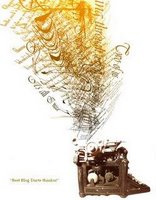The day starts with chai. Chai is the Hindi word for tea — so when you say “chai,” you’re really only saying tea. In the States, people confuse “chai” with “spiced tea,” which it isn’t really correct. Most Indians prepare chai (stewing tea leaves, etc.) by adding steamed milk, sugar, cardamon and/or cloves with the infused tea. Others may add things like cinnamon, but I was taught that this was sort of like preparing a dinner of hamburger to your dearest Hindu friends. People can be very particular about how they like their chai.
Not that Will particularly cares. He just knows he LOVES it. His favorite part of the day is 6:30am, when the bedside chai service arrives at the door.

There are monkeys living on the campus. They hang around the trees trying to poop on our heads. Kate finds them adorable, especially the babies. (Based on an experience in India 8 years ago, which involved a monkey-sting-operation to steal my camera, I find the varmints mean and creepy. We are keeping a respectable distance.)
But it is pretty cool to have monkeys living right along with you.
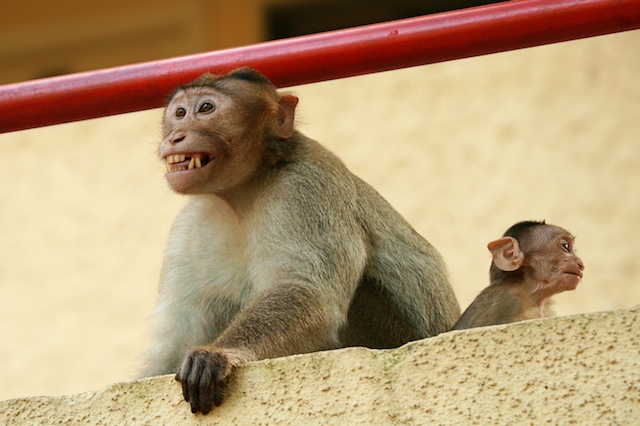
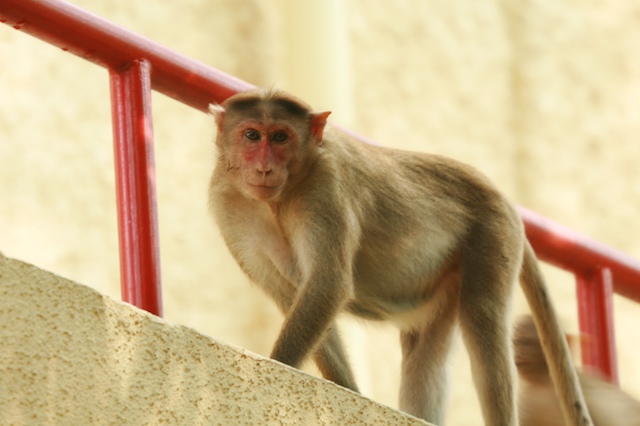
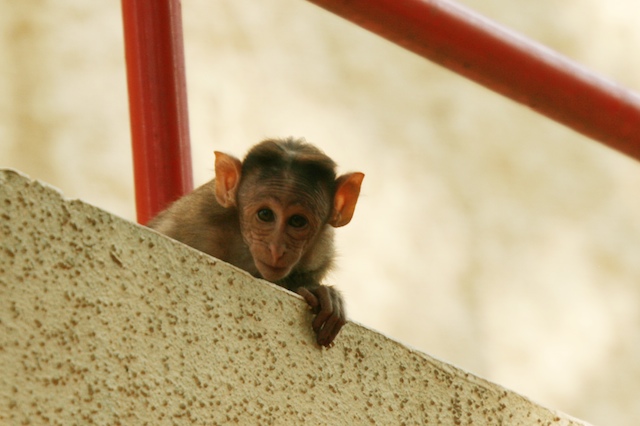
Okay, so maybe the wrinkly baby face is sort of cute, if you’re into the whole Vulcan-look. Doesn’t that baby monkey look like Leonard Nimoy as Dr. Spock?
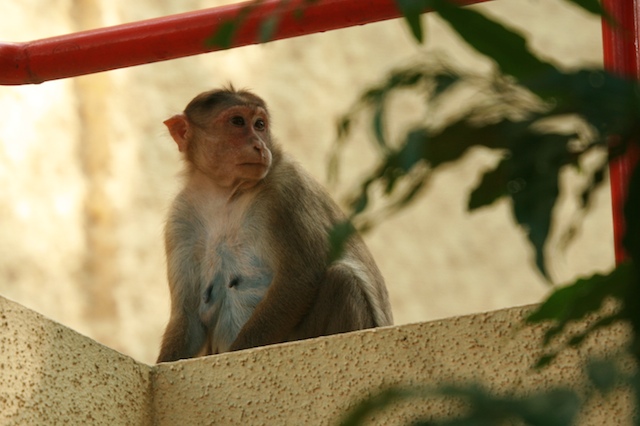
On Tuesday, we went down to India Gate and the Taj Mahal Hotel, which, with Mumbai traffic is a 14-hour commute into the city. Or something like 14-hours. The main city is crushed into a tiny pennisula, where hundreds of thousands commute in each day. There are a variety of building projects for expansion of fly-overs (over-passes which cross over the city), a second commuter rail, and a monorail. In the west of the city, there is a “Sky Bridge” which literally goes out over the sea to take traffic off of the crowded land. I’d imagine that the logistics are what make up both the dreams and the nightmares of urban planners.
Here’s us in front of the Taj Mahal Hotel. (Note: remember the terrorist event a few years back?)
My favorite part of the hotel is it’s history.  Back around the turn of the century, Brits had a super-fancy hotel that they kept “whites only.” Enter the building of the Taj Palace, “a hotel fit for India.” The detail on the exterior is truly exquisite.
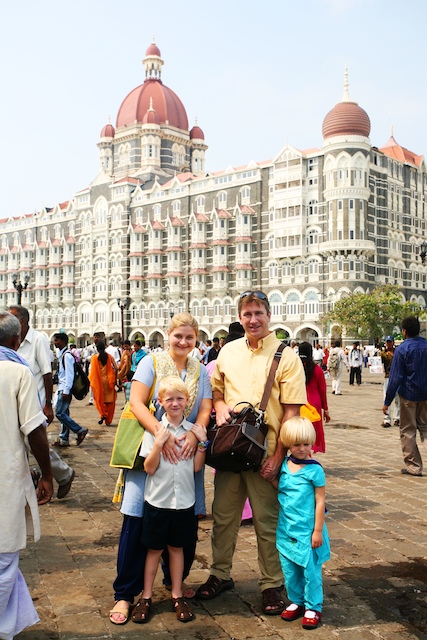
Here is the Gateway of India.  Not to be confused with the India Gate (the national monument, made in honor of the British Raj — Indians who fought for the British in WWI — which is in New Delhi). The Gateway was made between 1911-1924. The British built it to commemorate the visit of their monarch (George V, with wife Queen Mary) to the subcontinent. George and Mary saw a big cardboard structure, not the one that stands today with tall letters bearing the information from their royal visit.
It’s big.
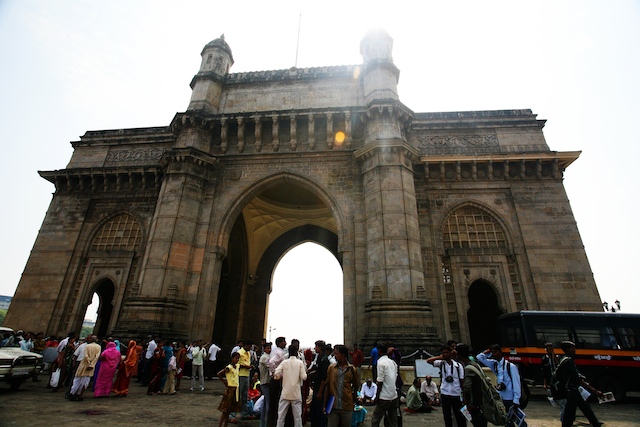
Big and cool.
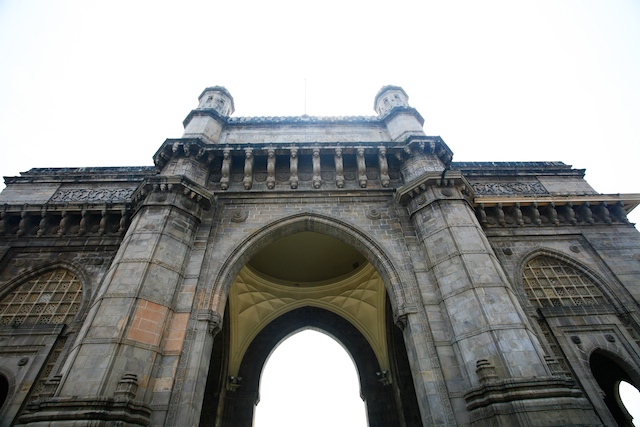
Kate was also a tourist attraction. Even though she was a little grumpy, having slept through the bumpy, traffic-filled trip to south Mumbai from the northern suburb of Chembur (where the university is located).
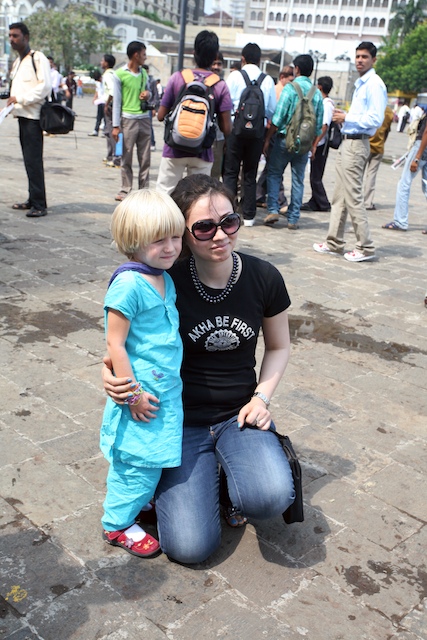
Then we headed along the bay and to the Taj hotel.  Fishing boats were tied all along the docks, with tourist boats to Elephanta Island and Indian Naval vessels anchored further out.
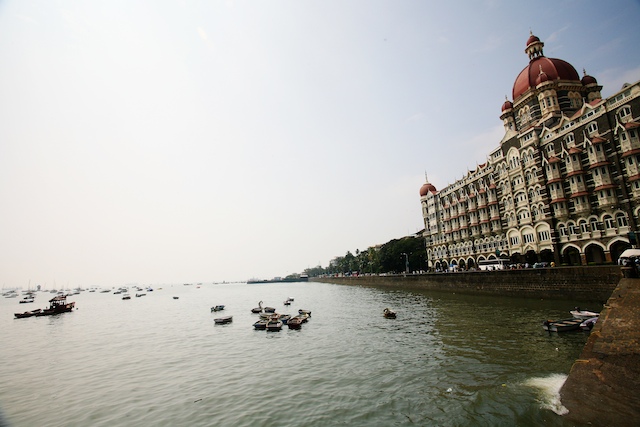
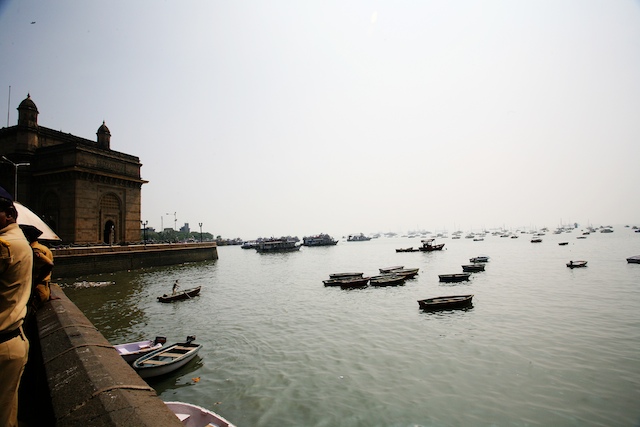
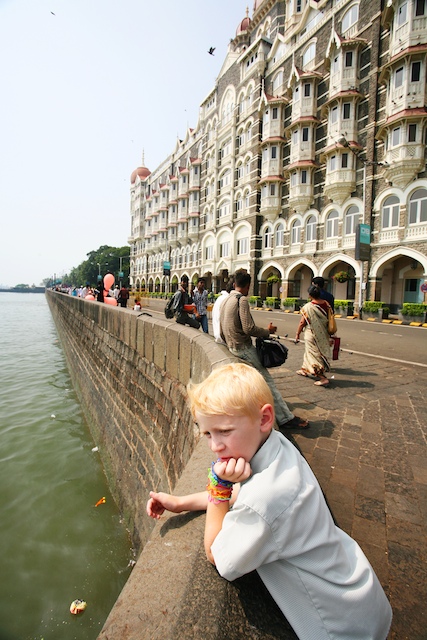
After passing a full 359 degrees around the protected perimeter of the building, we found the entrance. Walking by the guards and into the check-points and metal detectors in bold, direct steps, we passed for guests and didn’t get hassled going in.
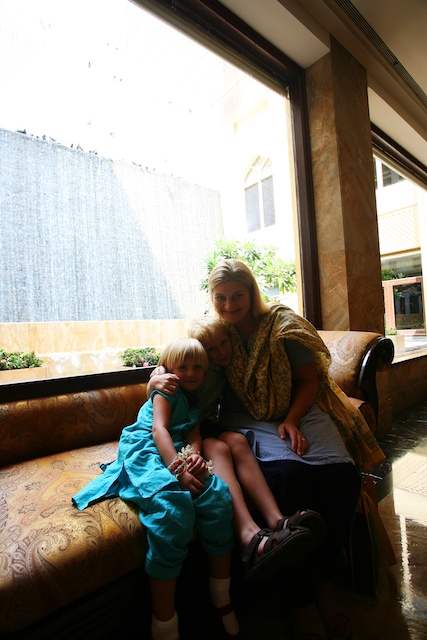
Where we proceeded to play “hotel tourist,” soaking up as much A/C as possible and using the fancy bathrooms with Western flush toilets at least once every 10 minutes. Just because.
The hotel is, by any standard, quite nice.
Several guests commented on how cute Kate was in her salwar. And when she turns and says, “Namaste” — well, Paul swears that he saw an Indian grandmother tear up.
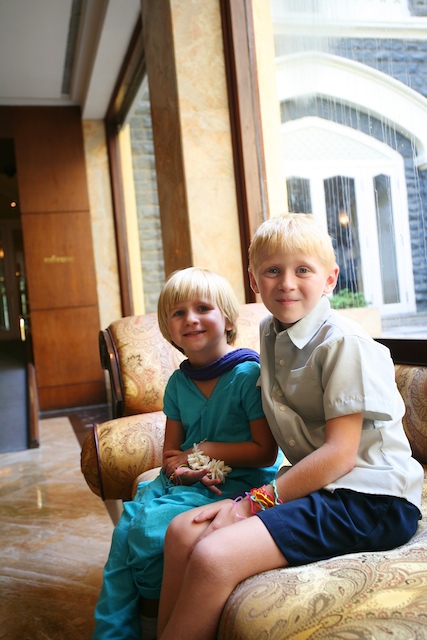
Kate is rocking both silly bands and jasmine here. The jasmine was tied on by an enterprising hussler on the street, who followed us around the building for 350 of those 359 degrees of that round-the-building tour.  Folks here are quite aware of the sorts of costs involved with traveling to India — and for most of the subcontinent (more than 60% of Mumbai live in slums — remember Slumdog Millionaire? — and at 13.6+ million people, that’s over 8 million folks) having the ability to travel means incredible wealth. So we don’t begrudge folks just trying to make a buck by selling stuff on the street. (We just wish they would give us a chance to come to them and not rush us at first sight. But hey, it’s hard not to appreciate their tenacity.)

The kids perked up a bit after being in the withering heat. Enough to start playing around.
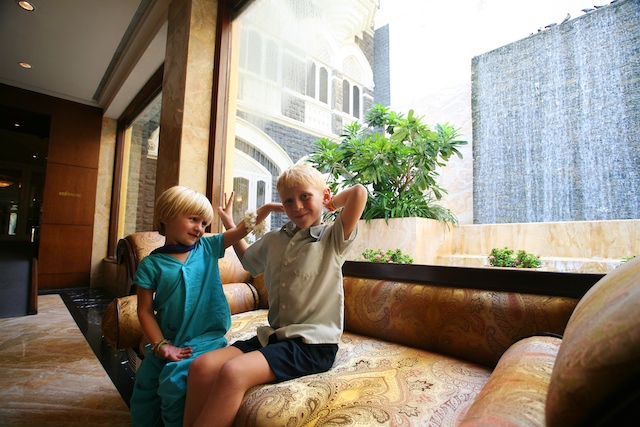
We gave Will the little camera to take pictures. He canvased the lobby (including making a creative series of photos involving Kate holding up various silly bands) and then posed us for a picture. I think you can tell from the look on our faces what we’re saying to him… he’s a breath away from knocking over a glass flower vase or priceless antique.
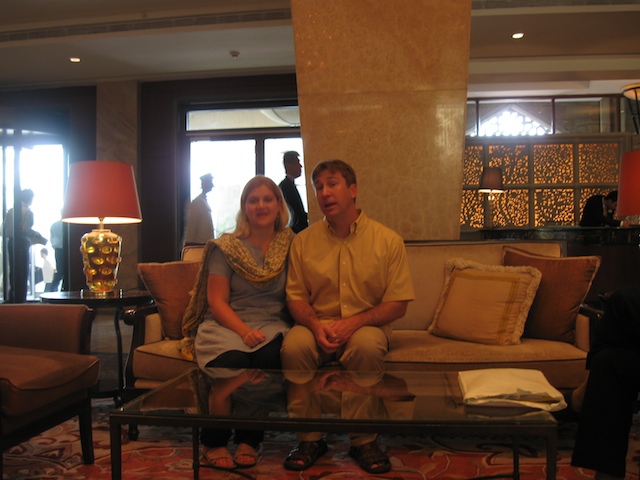
We loitered some more, even in the pool area. We didn’t see any celebrities, but were trying not to look too suspicious.
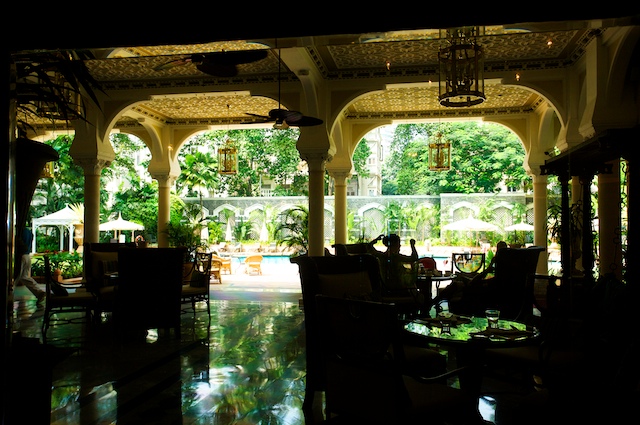
We checked out the various halls, displays with jewelry from the shops inside the hotel (mont blanc, Dior, silks and other fineries), and even walked into Chef Morimoto‘s restaurant, Wasabi. We were chased out of Wasabi. Turns out they weren’t open yet (but hadn’t yet told the front desk of this change in opening time) and kids aren’t allowed in the bar. Oh, well. Iron Chef is so 1990s, anyway. We went back to exploring.
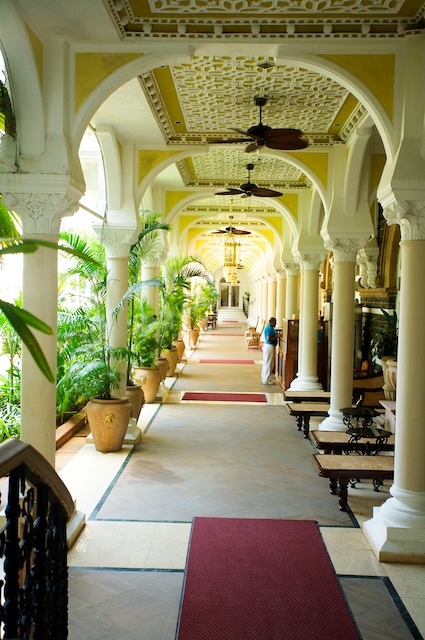
Then Paul went and had a man-to-man with the concierge. We were going to have lunch there, one way or another. 20 minutes later, were we sitting in our reserved lunch at the roof of the building, looking out over Mumbai…

